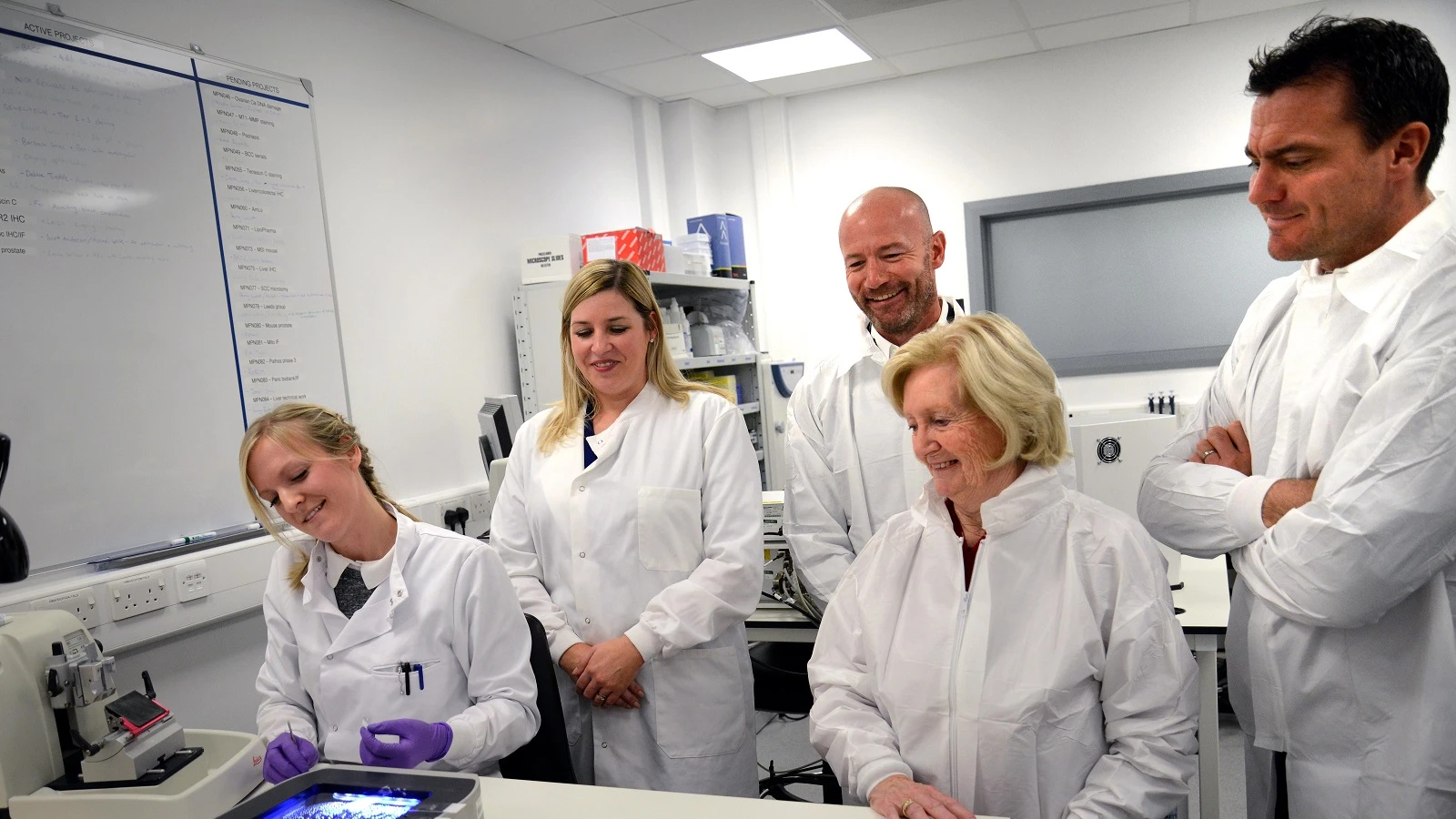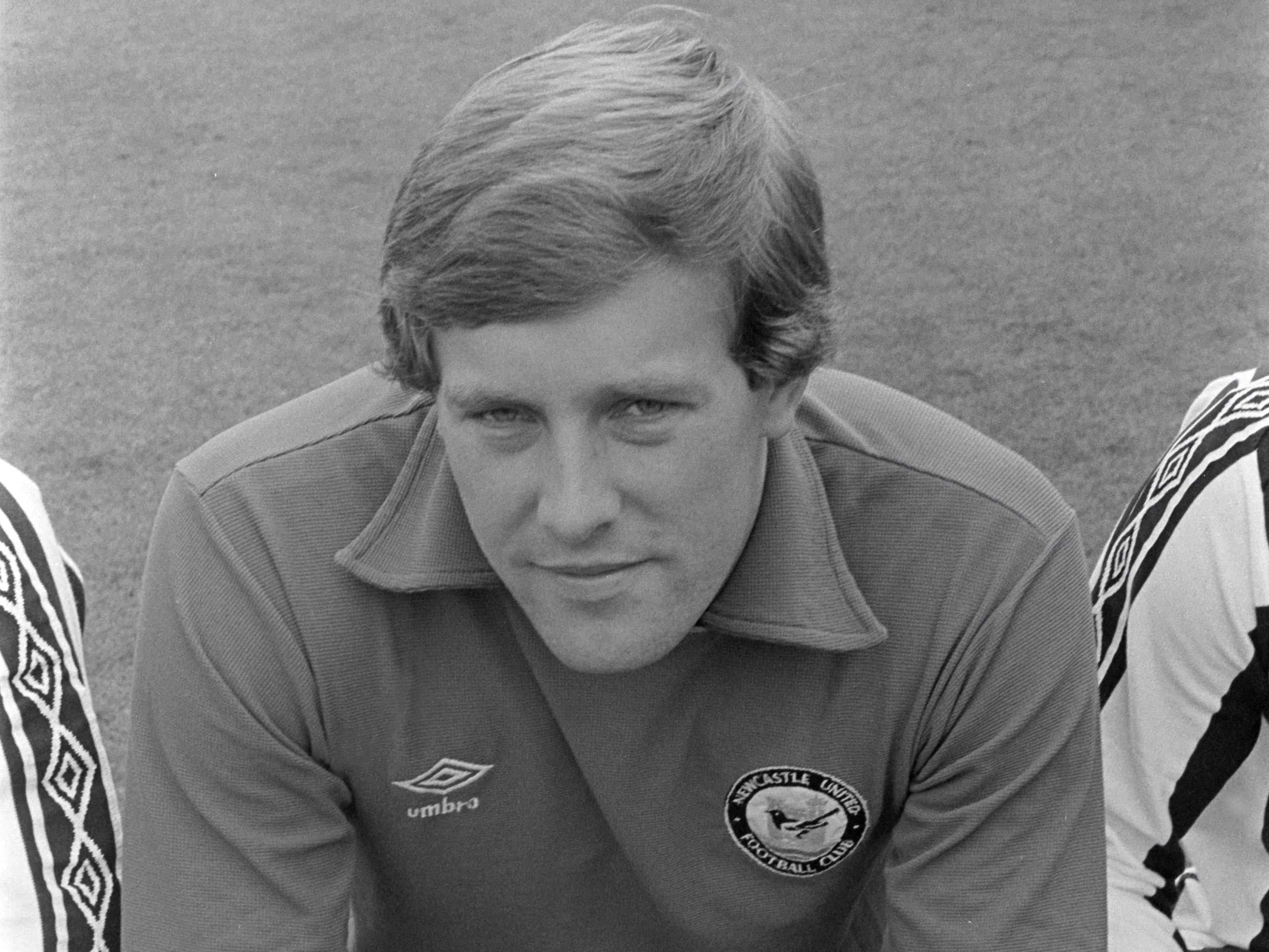The PROSPECT-NE genome sequencing project will work with up to 800 cancer patients from across the North East and Cumbria over the next four years. It will help develop “personal” cancer treatments, find out how cancer is impacting on patients’ health and determine in advance if side-effects are likely from treatment.
Funded by an £892,000 contribution from the Sir Bobby Robson Foundation, the project is being delivered at the Royal Victoria Infirmary’s new state-of-the-art Newcastle Molecular Pathology Node Proximity Lab – an exciting partnership between Newcastle University and Newcastle upon Tyne Hospitals NHS Foundation Trust.
On Wednesday, Shearer, Harper, Lady Elsie and pancreatic cancer patient John Reid – the first recruit to PROSPECT-NE – toured the Proximity Lab, meeting a team of highly-skilled scientific staff along the way.
Following the tour, Shearer told nufc.co.uk: “Everyone should be extremely proud. You don’t get to a day like today without the hard work and dedication of a lot of people.
“It’s all very technical. I’ve been in a mortuary (recently) because of my documentary on dementia, looking at brain samples, and now – with the samples I’ve just witnessed – I’ve certainly been adding to my education.
“I’m sure it would mean an incredible amount to Sir Bobby. I know it does to Lady Elsie. When you consider when all of this started out, Sir Bobby wanted to raise half a million pounds – I think it was – and you look at where it is now, it’s incredible.
“Huge strides have been made, and will continue to be made, because of the dedication of the team that are dragging this forward.”
Harper – who joined Shearer as a patron for the Sir Bobby Robson Foundation in September – added: “To see the detail that goes into treating people, all the way down to the level of individual DNA and then possible tailored treatments, is incredible. Hopefully it will improve rates of survival enormously.
“But, just to be here in the labs, on the coalface with all the research and analysis, is incredible. One minute I’m in a lab and looking at part of a lung and seeing what cancer actually looks like, in the next lab it’s being dissected and then you’re looking at it under a microscope. It’s just been mind-blowing.
“People talk about the Sir Bobby Robson Foundation and the wonderful work it does thanks to generous donations, but to actually see it has been amazing.
“I actually got a little bit emotional seeing the work here. I really feel the benefit of seeing it all at first hand.”




